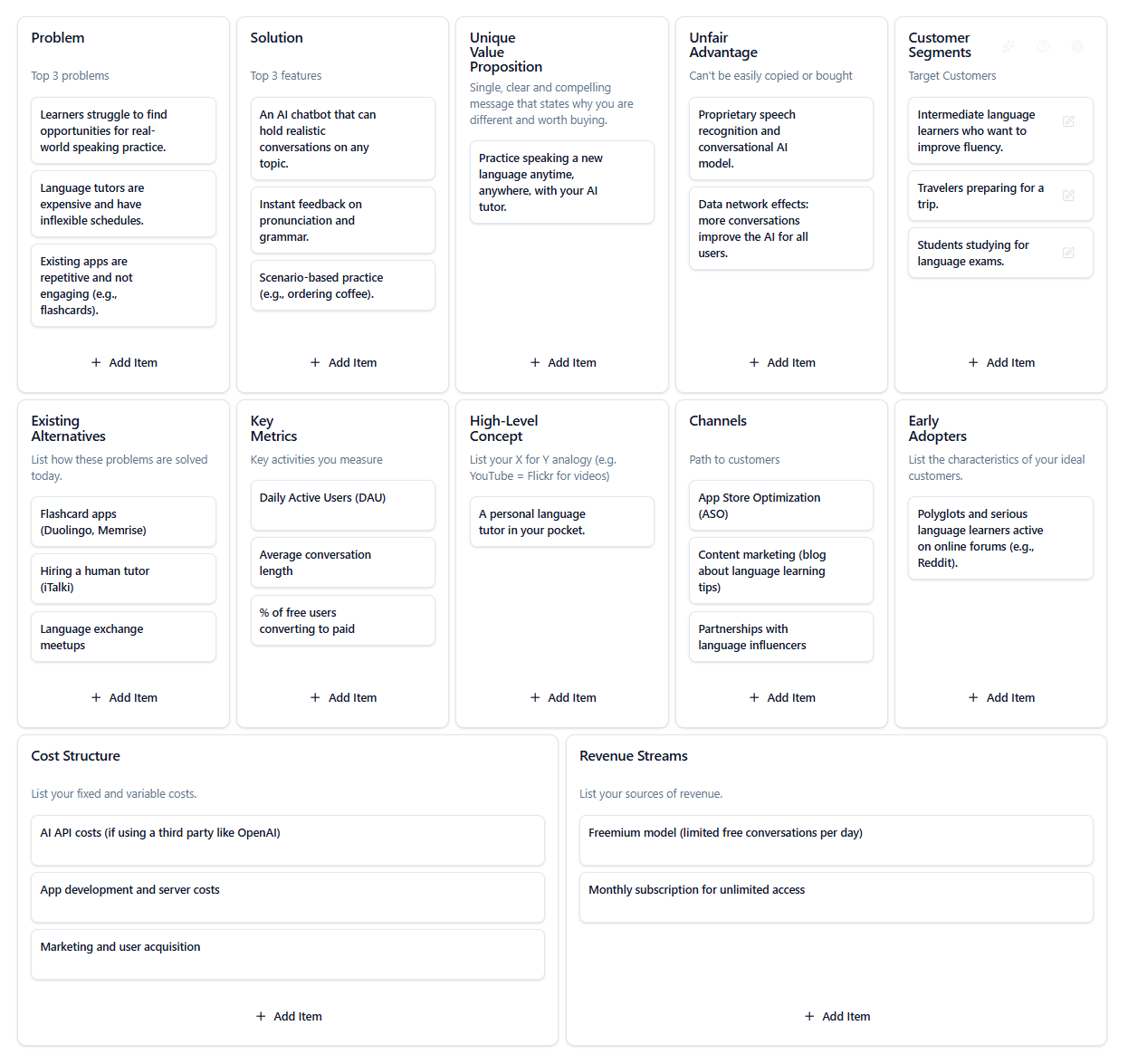E-commerce & Retail
Sustainable Fashion Marketplace
An online marketplace connecting consumers with independent, vetted sustainable and ethical fashion brands.

Analysis & Interpretation
Background
This Lean Canvas describes a two-sided marketplace addressing the growing demand for sustainable fashion. It aims to solve the problem of trust and discovery for consumers while providing a platform for small, ethical brands to reach a larger audience. This analysis focuses on its brand positioning and market-building challenges.
Key Strategic Insights
- Problem of Trust is Central: The core ‘Problem’ identified is not just finding sustainable clothes, but trusting the claims (‘greenwashing’). Therefore, the ‘Solution’—a ‘vetted’ marketplace with a ‘Sustainability Score’—is perfectly aligned to solve this.
- Unfair Advantage is Brand Reputation: The ‘Unfair Advantage’ is a ‘trusted brand reputation built on transparency’. This is a soft but powerful asset. Every action, from the vetting process to the content marketing, must reinforce this trust.
- Solving the Chicken-and-Egg: Like all marketplaces, the key challenge is acquiring both sides: ‘Conscious consumers’ and ‘sustainable brands’. The ‘Channels’ (content marketing, influencers) are well-suited to attract the target consumer, but the canvas needs a clearer strategy for attracting the initial supply of brands.
Strategic Summary
This is a mission-driven marketplace where brand integrity is the most critical asset. The biggest assumption is that the team can build a vetting process that is both rigorous and scalable. The immediate priority should be to manually onboard a small cohort of high-quality, ‘early adopter’ brands and focus all marketing efforts on telling their stories. This will attract the initial customer base and build the foundation of trust the brand needs to succeed.
Behind the Canvas
This version was built to show how flexible the platform can be when shaping a business concept from scratch. Here is a look at the process:

Generating Early Concepts
The “AI Suggestion” feature was used to brainstorm initial ideas for the “Solution” and “Channels” blocks.

Bringing Structure to Ideas
Colors marked different business functions, while quick tags made it easier to navigate between financial and operational components.

Learning from AI Evaluation
Once filled, the AI Review Tool analyzed the canvas and highlighted Customer Segments as a critical focus point for growth.
See It in Action
Launch this example in the workspace to explore, tweak sections, and see how AI-powered guidance supports your decision-making.


